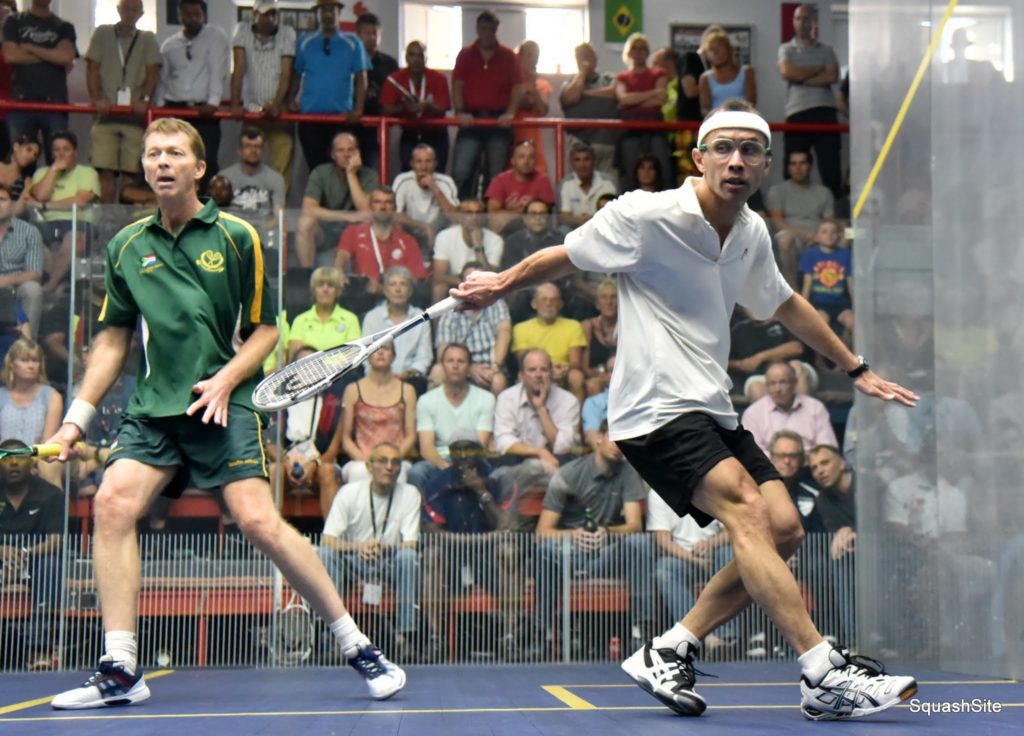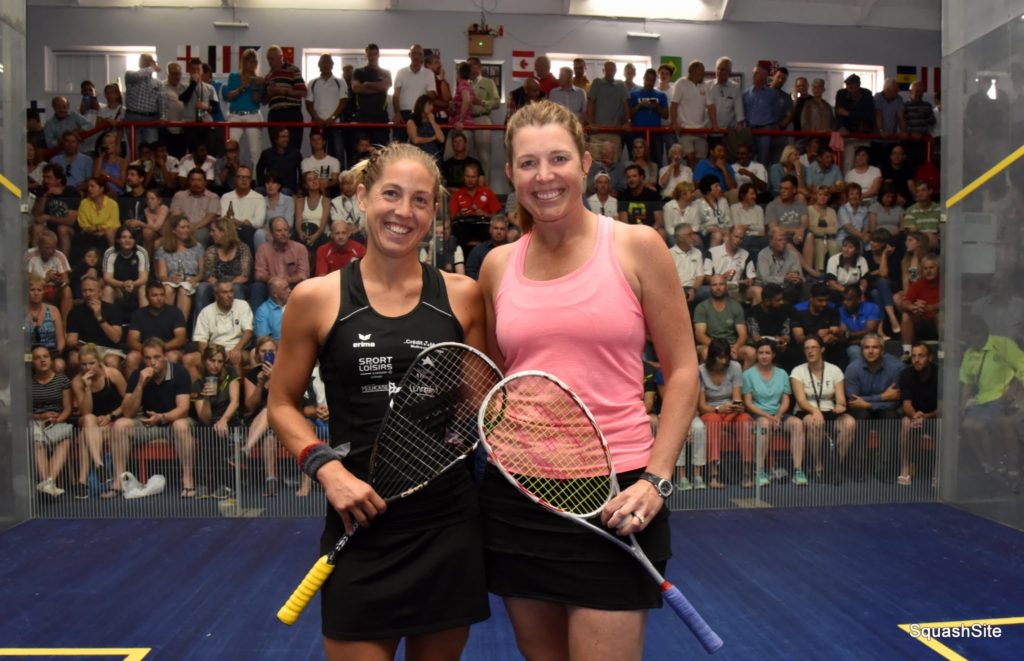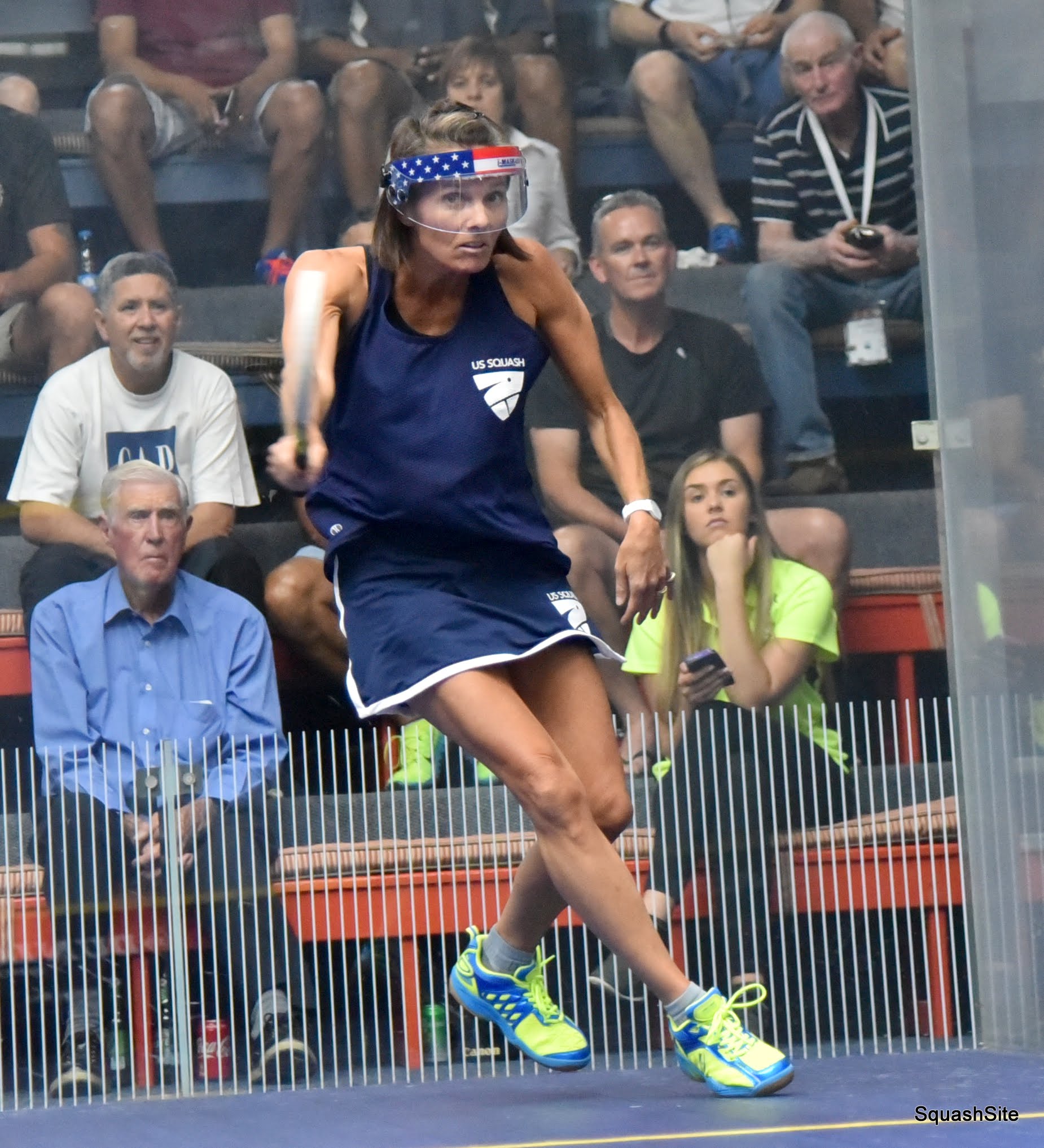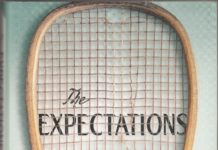
By Alan Stapleton
I am an average squash player, an ever-learning coach and a try-my-best administrator. Squash pulses passionately through my veins. When I heard the news that South Africa was hosting the 2016 World Masters, my bucket list became a little longer. An offer was made to print an extra thousand copies of my new book, Balls to the Wall, to give to each of the World Masters entrants. My little book was set to go international.
All was on track until a moaning knee started whispering to me. In trepidation, I hobbled to a surgeon and awaited my verdict. A kind man, he handed down a suspended sentence. Surgery was inevitable, but I would last until September.

champion in both the women’s 40+ and 45+,
lost in a heartbreaker in the semis of the 45+
draw at the World Masters, 13-11 in the fifth.
Preparation went well thereafter, until a bout of flu, a stretched Achilles and a hectic financial year-end brought about a seeping lapse in form and confidence. Was I trying too hard? The draw was published: first round vs. Hendrik Louw, from South Africa. Win that and I had Graham Jeffrey, also South African. Win that and a meeting with Peter Gilbee, the number three seed from Australia. My week could be over by the end of the weekend. I asked the question to myself “Am I good enough?”
For the rest of the world, Friday, September 22, was just a normal Friday. But for 952 masters squash players from all over the world, it was a momentous day. We gathered at the idyllic Country Club Johannesburg to register for the 2016 edition of the World Masters Squash Championships. As I walked into the club, I was transported into a majestic, wonderland-like, grassy paradise, tree-shaded and embroidered with old-style colonial buildings. It was a whirlwind of old friends, old faces, new faces, new friends and familiar faces with unremembered names. Laughter met laughter. Hugs were hugged. I met Richard Millman for the first time: he felt like a long-lost friend. And Anders Wahlstedt, such a gentleman. I met my opponent. And, should I win, my opponent after that.
Day One. The nerves jangled. Why? It was just a game of squash. Playing at 4:30. It was a long wait. I watched some squash, some good, some average. Surely, I should get through the first round. Nerves jangle more. I felt like a porcupine. And I played like one, but I squeaked through. Messy.
Day Two. I played much better. When I found my touch and slowed the pace, I was in control. But I got sucked into a bashing game and lost 11-9 in the fifth. I was out.
It was just as well. I would get more matches in the consolations. And I did. Two more. Until I met Fred Sarloos, a Dutchman based in Singapore. Lovely man. A big man. Bald. We could have been brothers. Those nerves returned. I arrived early but forgot to register. Rushed off to the office and returned. Then I realized I had forgotten my brace. The match started. I struggled to find length and rhythm. We bumped and barged a bit, and for a while, just a while, I felt as if I was gaining ascendancy.
But no. I fell. I am out. Properly. A cloud descended. I was sad. Maybe I should head home, I thought, please my wife…impress my boss.
In the locker room, I met with two hale and hearty Afrikaners in the same boat as me. Out. But not down. Happy just to have participated. We greet each other, and one delightedly exclaims, “Nee, vok, is jy DIE Alan Stapleton? (No way, are you THE Alan Stapleton?)

in history to win two world titles when she defended
her women’s 35+ title in Johannesburg.
My book had spread. My spirits lifted. I gathered my kit and eased down to the pub. War-horses were there: Reggie Holmes, Paul Symonds, Mike Toothil and Trevor Wilkinson. Forty-two years of tournament friendship with Chris Holden and Garth van Rensburg, Heroes and heroines from my youth, now just normal friendly folk, Frank Ellis, Sarah Fitz-Gerald, Natalie Grainger. Mr. Squash SA of days gone by, Owen Emslie, and Welsh coach, Gerwin Davies. And at the other end of the spectrum, players who I had coached or watched grow up: Rod Durbach, Trevor Davies, Sean Ryan.
Stories whirled. The depth of discussion, deeper; the laughter, louder. We talked about inter-varsity collisions with police vans, on-court collisions, coaching techniques, the sunshine circuits and Jonah Barrington, the halcyon days of the Hillbrow courts, dropshot yips and schoolboy expulsions. These fine men and women dragged back memories of misty days, of leagues, tours, tournaments and travels, memories of tough on-court battles, but more of off-court shenanigans.
The quality of the squash became better. I was amazed at the endurance, flexibility, speed and skills of these ageless machines. The spirit in which the matches were played was beautiful. Natalie Grainger’s final against Lauren Biggs must be the happiest, highest quality, match I have ever seen.
Oh, that I could bottle those matches and sip them with my wine, thankfully, I was also able to squash in some extra softball doubles with some fellow broken-down “Plate-cleaners” and mix with internationals from all over: George from Lebanon, Patrick from Sweden, Adam from Hong Kong and over-80s finalist, John Woodliffe, an inspiration.
South Africa wowed the participants at the world’s largest adult squash tournament with braai-hot, pub-friendly friendliness. Brothers and sisters-in-arms, players of all levels and all ages, bonded in a unique synergy of sportsmanship. For five days they courted and quarter’d, braced, bandaged and beered. The bodies, now slower, slowed more, in stiffness and soreness. But the skills were slicker (on court and off), tactically wiser (on court and off), in competitive camaraderie (on court and off), winning and losing on the courts. Off the courts, all were winners.





